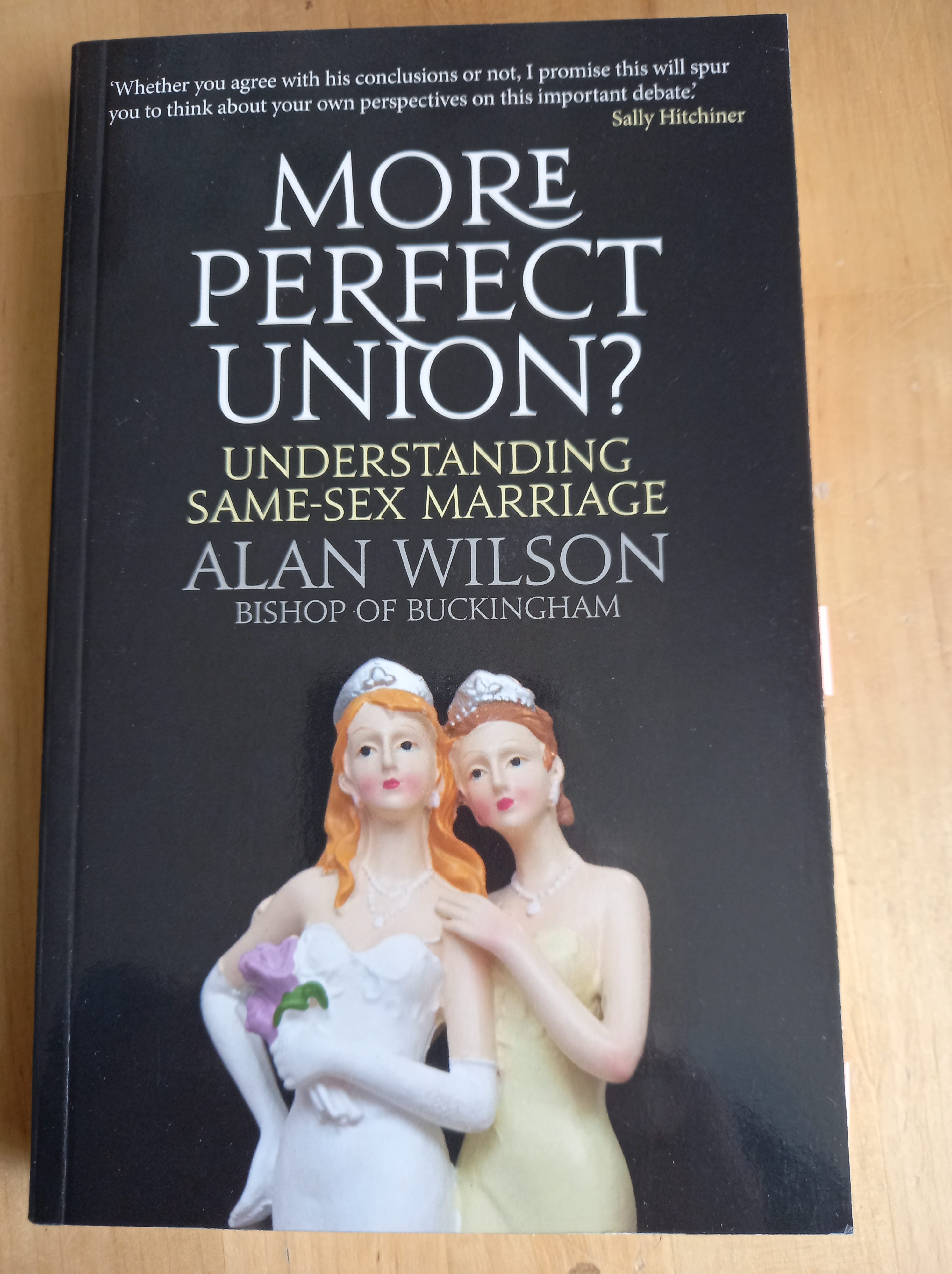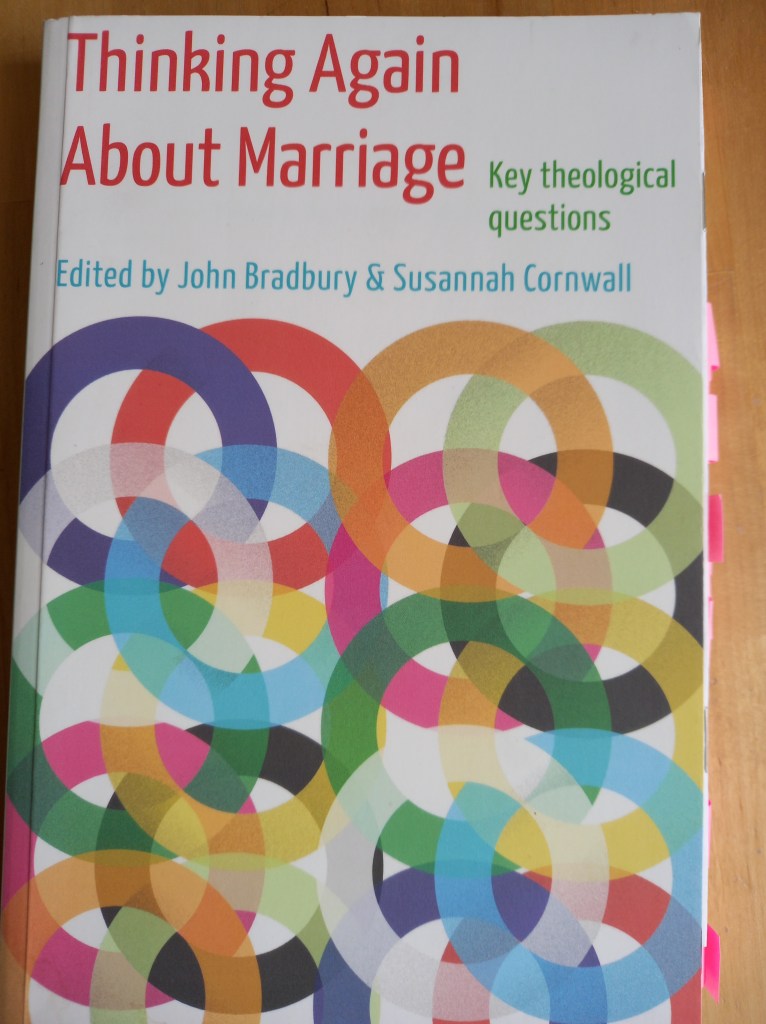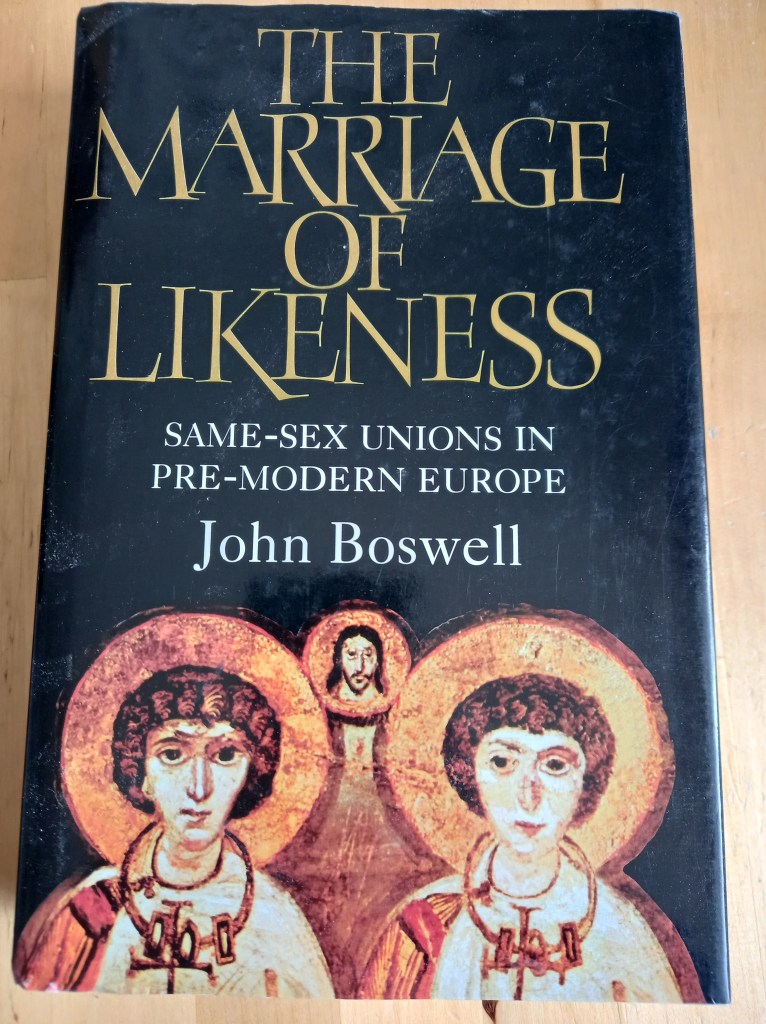Money, sex and power are a heady combination and have caused untold problems for the church since the very beginning. The church has been trying to be in control ever since.
Then governments tried to get involved. You can never have too much bureaucracy when there is temptation involved, as St Augustine might have said if he were alive today. Somehow these three elements of money, sex and power have all coalesced around marriage, leading to the centuries old fight over which institution controls marriage.
Until around the 12th century marriage was a very loose arrangement, that neither the church nor the instruments of government were very concerned about. Folk ceremonies such as hand fasting were perfectly good enough to establish that two people consented to be a couple and to have children together.
That sufficed for centuries, but then money came to be the issue. Or, to be more specific, inheritance. Social views were changing on the acceptability of illegitimate children. It came to be the case that legitimate heirs could inherit, but illegitimate ones could not – assuming that there was anything to inherit. The more wealth, titles and land you had, the more important it was to make sure that the right people would inherit it.
It became very important to make sure that the validity of a marriage could not be doubted. The best way to make sure of this was to have witnesses. What better witness than God? Unfortunately, God could not testify in court, but clergy could. Clergy who witnessed a marriage and recorded it were the best possible witnesses to show that a marriage had been legitimately entered into and that it was between the two people stated in the record. The idea that the couple marry themselves and the minister is a witness is still the current church position.
Church courts came to be the ultimate arbiter of who was legitimately married and who was not. They also became the final court for proving which children were legitimate. Services and liturgy developed, eventually becoming the services we know now from the Book of Common Prayer. By the early 1640s the church’s control of marriage in England was seemingly complete.
The middle of the 17th century was a turbulent time in English history and it produced a strain of Puritanism that did not accept the Book of Common Prayer and attempted to require The Directory of Worship (1645) to be used instead. For a brief time, Parliament even allowed justices of the peace to carry out weddings. Each parish was to elect a registrar to keep records of the new unions.
With the Restoration and the new 1662 Book of Common Prayer, the church managed to restore its power over marriage again.
It would be almost a hundred years before Parliament’s next serious attempt to take some control of marriage. Lord Hardwicke’s Act 1753 (An Act for the Better Preventing of Clandestine Marriages) required all marriages to take place in church, except the marriages of Quakers and Jews. It also required them to be legally registered.
From 1753, unless you were a Quaker or a Jew, you had to get married in church. That meant that the church was required to carry out the wedding. In 1836, this was amended to allow for Roman Catholic weddings and to make provision for other non-conformist traditions. However, the principle had been established that any couple who had the legal right to get married in England had the legal right to be married in their parish church. The 1753 situation had a lot to recommend it, both from the perspective of the Church and the State.
Governments are more responsive to the demands of the populations they govern than churches are. So, there grew demands for access to marriage to be widened. Parliament introduced legislation to allow categories of people to get married that the Church had previously not allowed to marry.
The first time this happened was 1857 when legislation allowed couples who had been divorced, and had a former spouse still living, to get married in church. The bishops forbade their clergy from carrying out these marriages. This lasted until 2004 when the bishops allowed clergy to carry out the marriages that they had always had the legal right to perform. No clergy were forced to carry out these weddings against their conscience.
It happened again in 1907, with the Deceased Wife’s Sister’s Marriage Bill. This gave clergy an opt out conscience clause. All clergy were able legally to carry out these marriages, but were not forced to do so if it was against their conscience. Then in 1921, there was the equivalent Marriage Bill for deceased husband’s brothers.
A similar arrangement was made in 2004 when those with a gender recognition certificate were allowed to marry legally in England. They had a right to get married in their parish church, but all clergy had a conscience clause.
Next, the coalition government legislated to allow same sex marriages in England. It bowed to pressure from some in the church and introduced the ‘quadruple lock’. This was the first time this had been used in legislation. The effect is that same sex couples are allowed to get married in various venues in England but not in Church of England churches.
This legal anomaly is part of the long power struggle between the Church and the State in England. For over 250 years, the State has been taking control of marriage in England and the Church has been losing the power struggle. The church does not want to agree with the government over same sex marriage, because to do so would be to admit defeat and allow that it is the government, not the church, who gets to define and control marriage.
The result now is an almost undeclared civil war within the church. It is a conflict that is alienating many in society, especially younger people.
Ironically, the Church’s best strategy for defusing the conflict would be to insist on the removal of the quadruple lock and the introduction of a conscience clause and allow clergy to conduct same sex marriages. They would be well advised to treat this like every other ‘marriage extension’ and allow all ministers to conduct same sex marriages in their churches. Those clergy who want to do so, will soon have a queue of people coming to their churches. Many middle ground churches will only have to consider their position when a same sex couple comes to their door wanting to be married. Then it won’t be theoretical, it will be about real people in their parish and pastoral and missional perspectives will be important.
Some ministers will not want to conduct same sex marriages and they don’t have to do so. That is important, nobody has to be required to act against their conscience. There will be calls for a split and some are already calling for a third province in England. The financial and reputational damage from that would be enormous.
Other denominations have gone for an opt-in approach, where conducting same sex marriage is allowed at national level, but every congregation has to decide for themselves if they want to register. So, far the uptake has been low, partly because each church would need to have ‘That Conversation‘ before registering.
Everyone who can legally marry in England has had the right to marry in their parish church for hundreds of years. It is time to get rid of the legal anomaly that is the quadruple lock and to let churches get on with their core business without the power struggles.
Love wins. Let’s get the party started.







